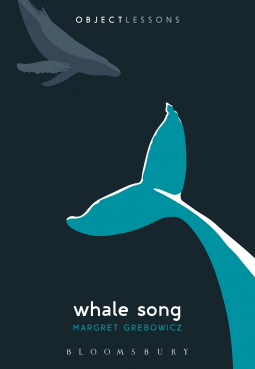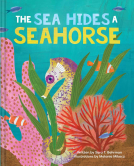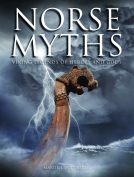
Whale Song
by Margret Grebowicz
This title was previously available on NetGalley and is now archived.
Send NetGalley books directly to your Kindle or Kindle app
1
To read on a Kindle or Kindle app, please add kindle@netgalley.com as an approved email address to receive files in your Amazon account. Click here for step-by-step instructions.
2
Also find your Kindle email address within your Amazon account, and enter it here.
Pub Date 7 Sep 2017 | Archive Date 11 Sep 2017
Description
Object Lessons is a series of short, beautifully designed books about the hidden lives of ordinary things.
The sapiens of the sea, whales are the other intelligent, social, and loquacious animal. But they seem to swim away the more people chase after them in an effort to communicate and connect. Why does the meaning of their mesmerizing songs continue to elude us? In times of unprecedented environmental and social loss, Whale Song ponders the problems facing ocean ecosystems and offers lessons from those depths for human social life and intimacy.
Object Lessons is published in partnership with an essay series in The Atlantic.
Advance Praise
"Writing with the clarity and precision of a dolphin’s clicks, Grebowicz covers the history of the sometimes-futile attempts by humans to communicate with whales, dolphins, and other ocean dwellers. Humans could learn much from the dispassionate language of these creatures, whose sonar and other forms of long-range sonic communication is, by necessity, without deceit." -Alvin Lucier, Composer
"Whale Song is just the music of the earth we need now. Margret Grebowicz is listening to our Terran cousins in the rising storm." -Donna Haraway, author of Staying with the Trouble: Making Kin in the Chthulucene
Available Editions
| EDITION | Paperback |
| ISBN | 9781501329258 |
| PRICE | US$14.95 (USD) |
Featured Reviews
 Gayle E, Reviewer
Gayle E, Reviewer
Whale Song is a slim volume that offers enormous reading pleasure. This book isn't so much a straight natural history about whale song or whales as it is a thoughtful and playful exploration about what human fascination with cetaceans reveals about humans.
The 1970 release of the LP Songs of the Humpback Whale signaled an attitudinal shift about the environment. Whales were no longer animals made to be hunted to line our corsets and fill our oil lanterns; they were now majestic creatures that, like us, vocalized, communicated, and felt deeply—or so their plaintive sounds suggested to us. However, as Grebowicz points out, "the antiwhaling movement and the subsequent growth of a culture of caring about whales was never just about the welfare of whales."
Our acknowledgment of cetacean intelligence certainly dovetailed with our Cold War–era imaginings about alien intelligence, and indeed Songs of the Humpback Whale was included in the space ship Voyager's Golden Record, the 1977 assemblage of human culture meant to explain ourselves to other intelligent life. Closer the present day, the viral social media phenomenon of 52 Blue, the whale vocalizing at frequencies beyond what any potential mates can hear, says more about our breakdown of community and intimacy, our own loneliness in the social media era, than it does about the actual whale's supposed inability to seduce a lady love.
We'd do well to consider other aspects of the context of our fascination with whales and dolphins, and more generally what our crazed consumption of cute animal videos via the emotional wasteland of social media says about us. Grebowicz reveals how the way we frame our research about cetaceans—our emphasis on and valuation of their curiosity and charisma—reflects our own impoverishment in these areas.
Grebowicz also has fascinating things to say about language versus communication, about historical attempts of interspecies communication (including the famous human Margaret Howe Lovatt and dolphin Peter cohabitation experiment), about music versus sound (I confess she lost me a bit here with the metaphysics), and about the dangers of conceiving our oceans as empty/blank space beyond the reach by human activity or agency. I love how she compared the physical pollution of the ocean, the toxic buildup that never goes away, to "language garbage" on the internet and the vast and unwieldy digital archives growing like a cancer as we speak (this review being no exception!).
I found this short but wide-ranging book deeply refreshing, thought provoking, and intellectually engaging. If this volume is any indication of the quality and content of the other volumes in the Object Lessons series, I'm very excited to read them. Thank you to the publisher and to NetGalley for the opportunity to read a digital ARC of this book. Be aware that material quoted here might differ in the final, finished copy of the book.
Readers who liked this book also liked:
Sara T. Behrman
Children's Fiction, Outdoors & Nature, Parenting & Families


















